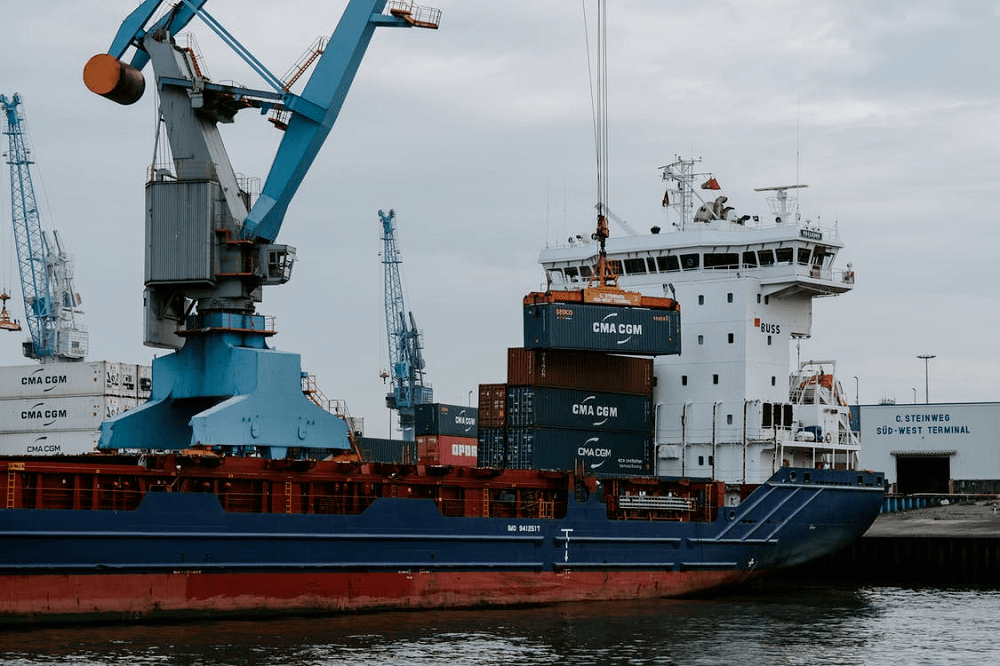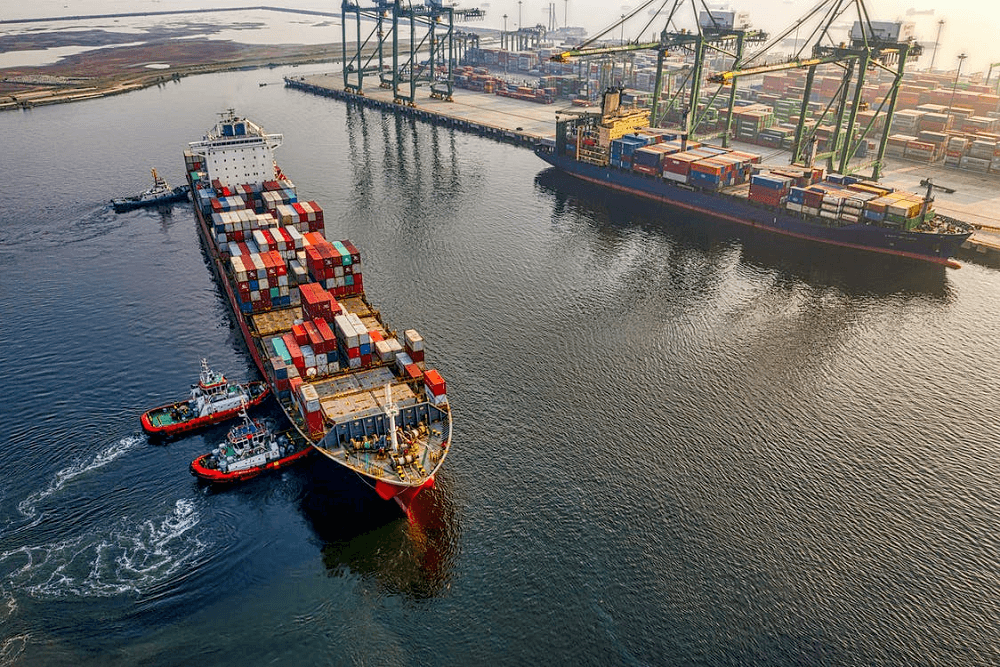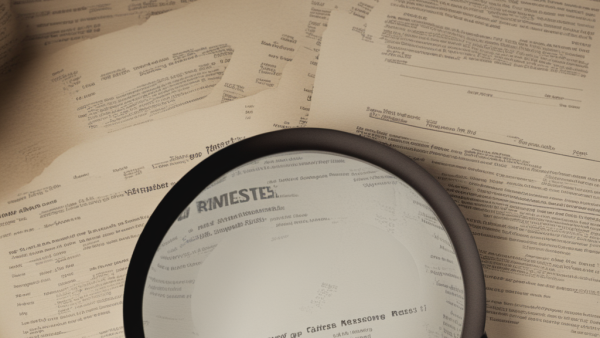
Last updated: July 08, 2022
We all know shipping is one of the major components involved with making any sale. It affects everything from customer service satisfaction to your profit. Unfortunately, however, many of us barely think about shipping options until the very last minute - by then, it becomes a headache.
With so many shipping carriers on the market, choosing the best option for your shipment is impossible. Even worse, making sense of the shipping policy can be a nightmare.
Fortunately, the International Chamber of Commerce (ICC) have managed to standardise shipping policies in international transactions and consolidate them into eleven separate Incoterms.
In this article, we will cover everything there is to know about the Ex Works (EXW) Incoterm and highlight the best time to use the policy.
If you’re looking for information on the other Incoterms, take a look at our Incoterms Overview section.
Table of contents
- What is Ex Works (EXW)?
- Understanding Ex Works (EXW) Incoterms
- When to use EXW
- When not to use EXW
- Advantages of EXW
- Disadvantages of EXW
- EXW vs other Incoterms
- Conclusion
What is Ex Works (EXW)?

Ex Works (EXW) is an Incoterm that puts the maximum responsibility on the buyer and leaves little responsibility for the seller. EXW dictates that the seller has fulfilled all obligations when the goods are made available to the buyer, usually at the seller’s location.
The seller has to make the goods available at their location for the buyer to arrange for them to be picked up. The location is typically the seller’s premises, such as a warehouse, factory, or office building.
The seller is responsible for export packaging and has to ensure the goods are ready for the collecting vehicle at the agreed place of delivery.
The buyer arranges the carriage to the final destination and must load the goods on their procured carrier.
The risk transfer occurs when the seller makes the goods available at the named place. The buyer is responsible for the entire journey and accepts the risk of loss or damage to the goods if something goes wrong.
Understanding Ex Works (EXW) Incoterms

Ex Works belongs to Incoterms group one and can be used in any transport mode.
Sellers typically choose EXW because it minimises their responsibility and makes the entire shipping process straightforward, as all the responsibility lies with the buyer. For example, EXW is the only Incoterm where the buyer is responsible for both import and export procedures, meaning that sellers do not need to worry about export clearance.
Interestingly, the goods do not need to be handed to the buyer for the seller to consider the delivery complete under the EXW Incoterms. Instead, the goods only have to be set aside and made available to the buyer for collection by a certain date. The seller can consider the delivery complete when the goods are set aside and are sitting at the seller’s factory waiting to be collected.
One important thing to note about EXW is that the seller has to prove that the goods have been exported from the origin country, or they will be liable to pay sales tax as if they were sold at home. Typically, the buyer is responsible for handing the proof of sale to the seller but is not obligated to. The seller isn’t even obligated to export the goods once they possess them. Without the proof of purchase being handed over, the goods aren’t exempt from sales tax, and the seller would have to eat this cost.
In addition, both the buyer and seller must agree on who will load the goods when taking delivery. For example, a seller is unlikely to want an unknown carrier using their own equipment to load goods at their warehouse due to health and safety concerns. Additionally, a seller won’t want a non-employee walking around their factory as they load the goods. So instead, the seller typically loads the goods for the buyer on the carrier. Again, however, this needs to be stated in the terms of sale.
Using EXW often results in the best-quoted price for the buyer as there are no additional costs to add for the seller, such as export clearance and shipping costs - they are all handled by the buyer.
Furthermore, Ex Works opens the market for buyers hunting for the best supplier. Typically, many manufacturers focus solely on production and only sell in their domestic markets with no intention of catering for international trade. As a result, they don’t need to obtain any export licences, but it limits their customer base. EXW allows buyers to hunt for suppliers and include them in their supply chain.
Lastly, insurance needs to be arranged and paid for by the buyer under Ex Works.
What do EXW Shipping terms include?

The shipping terms for EXW include the time and place for the delivery. It also specifies which carrier will collect the goods and breaks down the risk transfer between buyer and seller.
You will find the following terms in an EXW agreement:
Payment due to seller
Time and place of delivery
Which carrier will collect the goods at the seller’s location
Who is responsible for loading
Seller’s responsibility
In EXW, a seller is responsible for:
Making goods available for the buyer to collect
Creating a sales contract and a commercial invoice
Export packaging and marking
Assisting with loading at their warehouse (if stated in the sale contract)
Providing notice to the buyer that goods have been delivered
Buyer’s responsibility
In EXW, a buyer is responsible for:
Paying for the goods as dictated in the contract of sale
Providing seller with relevant information required to fulfil obligations
Arranging freight forwarder for international shipment
Loading at seller’s location
Proof of delivery to seller
Pre-carriage to terminal
Loading the goods onto the main carriage at the terminal
Origin terminal charges
Destination terminal charges
Pre-shipment inspection
Export procedures such as duty, taxes, and customs clearance
Main carriage
Unloading at destination
Onward carriage to the final destination
Import duty and taxes
Import clearance at the destination terminal
Insurance
Where are the risk transfers in the EXW?
The risk transfer in Ex Works is interesting because it doesn’t have to involve the physical transfer of any goods.
The risk transfer occurs in Ex Works as soon as the goods have been delivered to the buyer at the seller’s warehouse. However, as mentioned, the seller can consider the delivery complete as soon as the goods have been set aside at the seller’s premises.
This means the risk transfer technically occurs without the goods being passed to the buyer’s carrier. Instead, the risk transfer happens as soon as the seller has set aside the goods, ready to be collected by the buyer.
When to use EXW

Ex Works is one of the best Incoterms for exports from the United States that use routed export transactions. A routed export transaction occurs when a foreign buyer of the goods contracts a freight forwarder to export said goods out of the country.
Businesses who routinely purchase from one country can take advantage of Ex Works as they have the option to consolidate products from multiple suppliers together. The buyer can wait until all their purchases are complete and then can choose to export all the goods as a single shipment.
Ex Works is also a great option when the seller cannot export from their own country. This is usually when the supplier only sells in the domestic market and doesn’t have the required export licences.
When not to use EXW
As the buyer pays most of the costs in Ex Works, their risk is extremely high - especially if they are inexperienced. Suppose the buyer can’t handle the required formalities in the export country. In that case, the Ex Works Incoterm is unsuitable, and the buyer should use an alternative such as Free Carriage Arranged (FCA) instead.
Additionally, if the seller intends to obtain a tax return on the exported products to add to their profit, Free On Board (FOB) might be a better option. This is because sellers are exempt from sales tax under Ex Works, so long as they can provide proof of delivery from the buyer.
Advantages of EXW
As Ex Works places the most burden on the buyer, many advantages lie with the seller. For example, the seller has no risks or costs in delivering the goods. Additionally, they are not responsible for loading the goods at their premises. However, due to health and safety concerns, they will most likely make the exception and pass on the loading charges to the buyer.
Ex Works is also advantageous to buyers as they have complete control over the entire logistics process. The buyer can hunt around to find the best deals for the shipping and ensure they are paying the best price for the goods.
Additionally, Ex Works provides an option to hide the buyer’s supplier by shipping under a different name on the shipping document. This allows them to keep their suppliers secret from any potential competition.
Disadvantages of EXW
Many disadvantages lie with the buyer in Ex Works as they take the entire risk and cost to deliver the goods to the final destination.
If the buyer is not skilled in the shipping process, especially in handling foreign export customs, they could pay higher prices for the goods.
Although the seller’s responsibilities are limited, they still have to assist the buyer in obtaining an export licence if requested at the buyer’s expense. In addition, if the buyer doesn’t provide proof that they have collected the goods for export, the seller might be subjected to sales tax, which will eat into their margin.
EXW vs other Incoterms

Below is a quick comparison and summary of EXW against other popular Incoterms.
EXW vs FOB
In Free on Board (FOB), the supplier is responsible for exporting and paying the costs to load the cargo onto the vessel. From that point onward, the customer takes all responsibility. FOB should be used instead of EXW if the buyer cannot handle the export formalities.
EXW vs FCA
In Free Carriage Arranged, the supplier has a few more obligations in international trade. For example, in FCA, the supplier has to arrange loading at the warehouse and pay for the pre-carriage to the terminal. Additionally, under the FCA Incoterms, the seller must also arrange the export formalities.
EXW vs DDP
EXW and Delivered Duty Paid (DDP) are two Incoterms on opposite sides of the spectrum. Under DDP, the seller has the maximum obligation, while under EXW, the buyer has the maximum obligation.
DDP requires the seller to deliver goods from the seller’s warehouse to the buyer’s final destination. However, goods bought under DDP tend to be slightly more expensive as the seller is likely to include some of the delivery costs in the sales price.
Conclusion
Ex Works is one of the most popular Incoterms. However, as it places the majority of the risk on the buyer, they should have complete confidence in handling all the shipping logistics, including export formalities. If the buyer cannot handle export formalities, FCA or DDP should be used instead.
Written by

Sam founded his first startup back in 2010 and has since been building startups in the Content Marketing, SEO, eCommerce and SaaS verticals. Sam is a generalist with deep knowledge of lead generation and scaling acquisition and sales.


